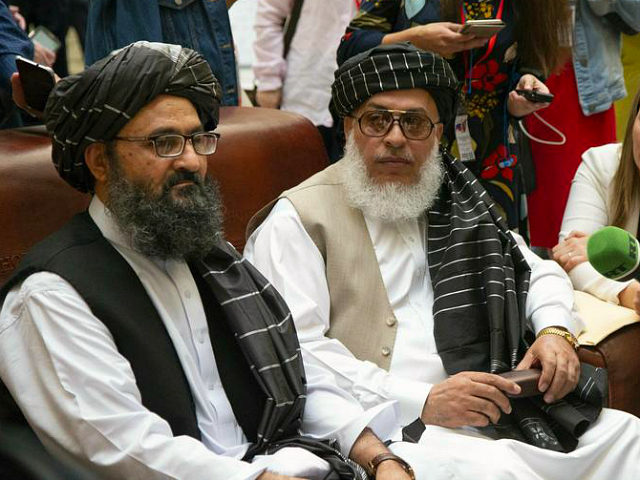A Taliban delegation recently traveled to Beijing to discuss U.S. backed peace efforts as well as “mutual” counterterrorism concerns in Afghanistan, the Chinese foreign ministry confirmed on Thursday.
Indian media report that New Delhi’s rival
Beijing hosted the delegation led by the Taliban’s political deputy chief
Mullah Abdul Ghani Baradar in a bid to expand its role in Afghanistan, which is
expected to house projects from Beijing’s Belt and Road Initiative (BRI).
Asked about the Taliban’s visit on
Thursday, Lu Kang, a spokesman for China’s Ministry of Foreign Affairs, told reporters that the two sides
exchanged views “on Afghanistan’s peace and reconciliation process,
counter-terrorism and other issues of mutual interest.”
China has expressed support for intensifield negotiations between the
U.S. and the Taliban to end the war in Afghanistan raging since October 2001.
Kang noted: We
support intra-Afghan dialogue and broad, inclusive peace and reconciliation
that is Afghan-led and Afghan-owned. The Chinese side exchanged views with Mr.
Baradar based on our consistent position, which is part of our efforts in
promoting peace and facilitating talks between relevant parties.
Both
sides agree to stay in communication and cooperation for the political
settlement of the Afghan issue and counter-terrorism. For the early realization
of peace, reconciliation, stability, and development in Afghanistan, China will
continue to conduct talks and coordination with relevant parties through
various means.
The Pentagon has long accused China’s close ally Pakistan of
harboring the Afghan Taliban. Pakistan has taken credit for facilitating the
ongoing peace talks.
The
Trump administration has intensified peace-seeking efforts over the last year,
making the political reconciliation between Afghanistan and Kabul the primary
goal of its strategy to end the nearly 18-year-old war. Nevertheless, the
Taliban’s refusal to allow Kabul to participate in the ongoing negotiations has
surfaced as the primary hurdle to the talks.
Taliban
narco-jihadis, who are fighting to establish a sharia-compliant Islamic emirate
in Afghanistan, consider themselves the only legitimate government of
Afghanistan, dismissing Kabul as an American “puppet.”
The Taliban and its al-Qaeda allies maintain an affiliation with Chinese Uighur
jihadis who operate and train in the Afghanistan-Pakistan region, which the
Pentagon believes to be home to the highest concentration of terrorist
groups in the world, including the Islamic State (ISIS/ISIL).
Beijing, however, has expressed support for the Taliban despite its
ongoing relationship with al-Qaeda, which, along with ISIS, has threatened to
attack China.
The
Muslim-majority Chinese province of Xinjiang borders Afghanistan and
Pakistan-occupied Kashmir, a region claimed by Islamabad, its ally Beijing, and
their rival New Delhi.
To
the dismay of India, China’s BRI is expected to run through Afghanistan,
Pakistan, and the disputed Kashmir region. India and the United States oppose
the BRI.
In February, the U.S. military warned that China might use the BRI to
“support and mask” its military objectives as it continues to try to “displace”
its rival the United States and expand its influence in Afghanistan and the
Middle East.
The Wall Street Journal reported this week that China and
Russia are vying for influence in Central Asia as the United States seeks to
exit Afghanistan.
Taliban
terrorists already control or contest almost half of Afghanistan, more than
during any other time since the U.S. military ousted the group’s regime in late
2001, soon after invading the country.

No comments:
Post a Comment